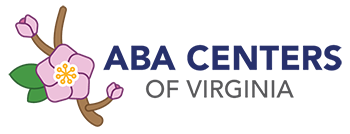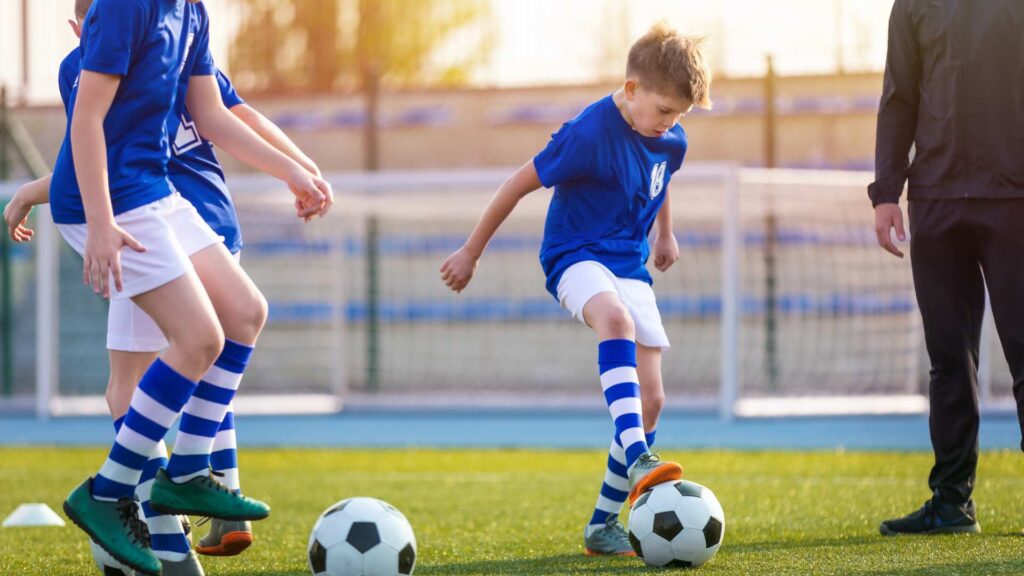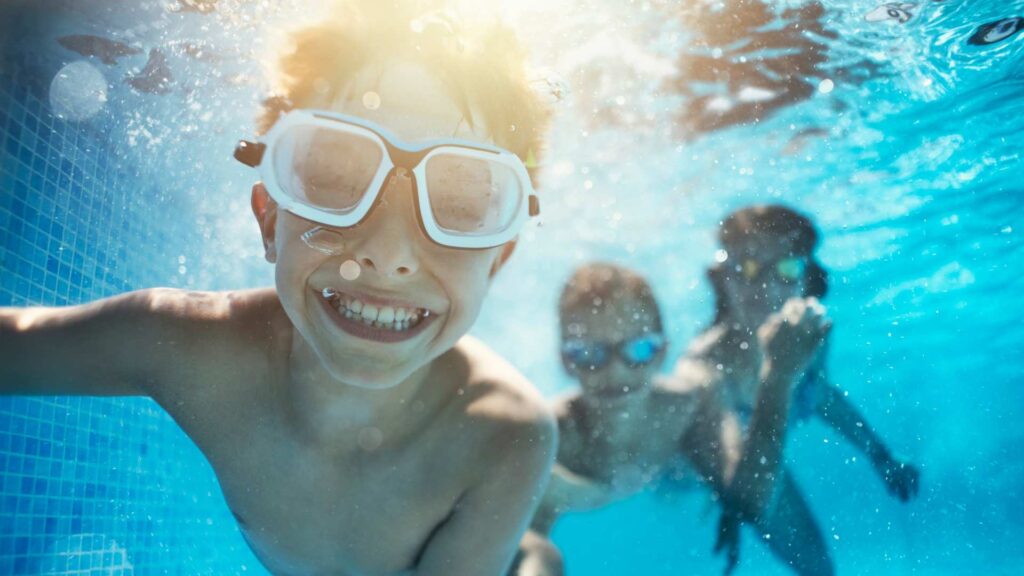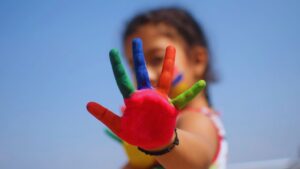Table of Contents
Are sports good for kids with autism?
Enrolling children in sports is a common consideration for many parents, not only to fill their time but also to enhance their well-being and physical condition and provide opportunities to make new friends or even discover a potential career. However, sports for children with autism can present additional challenges that may require careful consideration and adaptation.
Children with autism often experience difficulties with social interactions, communication, and sensory sensitivities, which can make traditional sports environments overwhelming. For instance, the noise of a crowded gym or the unpredictability of a team sport can be daunting. It is essential to approach this with patience and an understanding that every child with autism is unique.
Many parents may wonder: “Are sports good for kids with autism?” Despite these challenges, it is not impossible to find a sport that suits the interests and needs of children with ASD. Keep reading this blog by ABA Centers of Virginia and learn the benefits and the best way to introduce sports to children with autism.
Understanding the Challenges
As you may have noticed, our blogs frequently discuss the challenges that children with autism face in various aspects of their lives and environments. For instance, we often explore the difficulties they encounter in school, adjusting to new foods, managing sensory overload, and understanding social cues. Let’s explore the challenges in sports now.

Children with autism often face unique challenges when it comes to participating in sports. The structured routines and multi-step instructions are standard in many sports and can be complicated for them to follow. Additionally, the sensory aspects of sports—such as loud noises, bright lights, and physical contact—can be overwhelming. These sensory sensitivities can make the environment of traditional sports settings quite challenging.
Moreover, the social interaction required in team sports can be another hurdle. Children with autism might struggle with understanding social cues, communicating with teammates, and engaging in the dynamic and often unpredictable nature of team play. If not adequately addressed, this can lead to feelings of frustration and isolation.
Despite these challenges, it is entirely possible to find sports that accommodate and even capitalize on the strengths of children with autism. Individual sports can offer a more controlled and less sensory-overloading environment.
By identifying the right sport and ensuring proper support and accommodations, children with autism can enjoy the numerous benefits of physical activity. Programs specifically designed for children with special needs, led by trained professionals, can provide the tailored guidance and encouragement necessary for these children to thrive in a sporting environment.
Benefits of Sports for Children with Autism
The Journal of Sports and Exercise Psychiatry explores how physical activity (PA) affects individuals with ASD, particularly by looking at different types and amounts of PA. The findings show that PA can be a helpful additional therapy for autism, improving social skills, emotional regulation, and overall health. Regular physical activity helps manage metabolism, reduces the risk of chronic diseases, and positively impacts mental health. Specific benefits of PA include better sleep patterns, enhanced executive functions, and improved metabolic health.
Additionally, engaging in sports activities can help children with autism develop better coordination and motor skills, which are often areas of difficulty. Participating in structured sports programs provides opportunities for social interaction, teamwork, and communication, which can foster a sense of belonging and improve self-esteem. Sports like martial arts, for instance, not only enhance physical fitness but also teach discipline, focus, and self-control.
Furthermore, team sports and group activities promote cooperation and empathy as individuals learn to work towards common goals and support their peers. These social experiences are invaluable in helping autistic individuals navigate social situations more effectively.
Best Sports for Children with Autism
While individuals with ASD may face unique challenges, there are always ways to teach them new skills and help them discover activities they enjoy. Finding the perfect sport that suits their needs and preferences can make a significant difference in their physical, social, and emotional development.
1. Swimming
It provides a sensory experience that can be both calming and stimulating. The water’s resistance helps improve muscle tone and coordination, while the rhythmic nature of swimming strokes can offer a soothing effect. Additionally, it can help reduce anxiety and promote relaxation.
2. Martial Arts
These sports teach discipline, focus, and self-control. It also provides a structured environment, which can be beneficial for children with autism. The repetitive movements and routines can improve motor skills and enhance concentration.
3. Track and Field
Track and field events offer a variety of activities that can cater to different interests and abilities. Running, jumping, and throwing can help develop gross motor skills, increase stamina, and boost self-esteem. The individual nature of many track events can also provide a sense of personal achievement.
4. Gymnastics
This sport involves activities that enhance flexibility, balance, and coordination. The structured environment and clear routines can help children with autism feel more secure. Gymnastics also encourages body awareness and can improve fine motor skills through activities like tumbling and balance beam exercises.
5. Horseback Riding
Horseback riding can be therapeutic for children with autism. The movement of the horse provides sensory input that can help with balance and posture. Riding also requires communication and interaction with the horse and instructors, which can enhance social and communication skills.
6. Basketball
Basketball promotes teamwork and communication and can help children with autism develop social skills. The physical activity involved in dribbling, shooting, and passing the ball helps improve coordination and motor skills. The fast pace of the game also helps increase attention and focus.
7. Soccer
Soccer is a great way to develop coordination, teamwork, and strategic thinking. Running in soccer improves cardiovascular health and stamina. Participating in a team sport like soccer can also help children with autism build friendships and enhance their social interactions.
8. Yoga
Yoga focuses on breathing, flexibility, and relaxation. Its calm and structured environment can help reduce anxiety and improve focus. Yoga poses and routines also help develop strength, balance, and body awareness.
9. Bowling
Bowling provides a structured and repetitive activity that can be comforting for children with autism. It helps develop hand-eye coordination and social skills through turn-taking and group interaction. Bowling can also be adapted to individual skill levels, making it an inclusive activity.
10. Golf
Golf is played in a calm, controlled environment, making it ideal for individuals with autism. It promotes concentration and focus, develops motor skills, and encourages self-control and emotional regulation.
Sport-Friendly Programs in Virginia
The Joey Pizzano Memorial Fund – JPMF Splash
It’s a nationally acclaimed water skills and safety program tailored for individuals with disabilities. It focuses on teaching essential water safety through five specially developed rules. This program not only enhances physical fitness but also introduces participants and their families to lifelong leisure activities, fostering social interaction with non-disabled peers and encouraging community integration.
Adaptive Martial Arts
This program modifies traditional Tae Kwon Do techniques and teaching strategies to meet each student’s unique requirements. It caters to children with Autism Spectrum Disorders and other developmental, intellectual, or physical disabilities. The program provides individualized instruction within a group setting, allowing students to enhance their motor skills, coordination, focus, and self-control through weekly half-hour classes that include Tae Kwon Do drills and games.
Lead by Example
This program offers 30-minute classes for children with High-Functioning Autism and mild disabilities, divided into age groups 5-8 and 9-15. The program focuses on developing social skills, decision-making, confidence, and physical fitness through obstacle courses, stretching, and TKD drills, complemented by interactive games and mat chats for mental wellness.
ACEing Autism
Empower children with autism by providing affordable tennis programs that foster social connections and promote fitness. Their tailored approach addresses individual needs, filling a crucial gap in national services for this population. The program aims to support children’s growth and development effectively. In Virginia, they have a presence in Fairfax, Richmond, and Williamsburg.
ABA Centers of Virginia and Autism Services
At ABA Centers of Virginia, we understand the unique challenges faced by children with autism and their families. Through Applied Behavior Analysis (ABA) therapy, we provide personalized, evidence-based interventions designed to improve communication, social skills, and adaptive behaviors. Our experienced therapists work closely with each child to develop tailored programs that meet their specific needs and goals.
ABA therapy is the gold standard in autism treatment. It helps children learn new skills and reduce behaviors that may interfere with their daily lives. By focusing on positive reinforcement and structured teaching methods, we create an engaging and supportive environment where children can thrive.
Our therapists also use play-based sessions to enhance learning and development. These sessions can prepare children for sports participation by improving their motor skills, coordination, and teamwork.
Families in Arlington and Washington, D.C., benefit from this holistic approach. Join us in our mission of improving the lives of kids and teens with autism. Call us at (855) 957-1892 or schedule a free appointment to check insurance benefits and learn how we can help your kid thrive.








